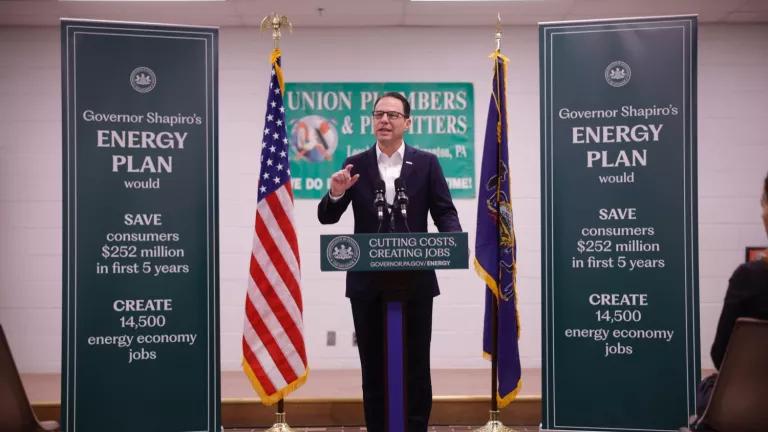Global Climate Action Summit: A World Moving Beyond Coal

At the Global Climate Action Summit, companies, cities, provinces are showcasing the concrete actions they are taking to make the Paris Agreement on climate change a reality. Right now, national commitments under the Paris Agreement to reduce emissions are not enough to avoid extreme climate-related disasters. The Global Climate Action Summit calls upon everyone, not just national governments, to step up and take more concerted action on climate change. And on the difficult question of decreasing global use of coal, the Summit has delivered some major successes already. The global Powering Past Coal Alliance has added ten new members—committing to a phaseout of coal power, a major global investor announced a ban on new financing for coal-related infrastructure, and the Insure Our Future campaign launched in the United States.
A Global Coal Phaseout Alliance
The Powering Past Coal Alliance consisting of countries, regions, businesses and cities committed to a phase-out of coal power plants. Membership means a commitment to phasing out coal power use within the jurisdiction of a city, region or country, or businesses committing not to use coal power. New members in the Alliance announced at the Global Climate Action Summit include Wales, Connecticut, New York State, Minnesota, Hawaii, the cities of Honolulu and Los Angeles, the Balearic Islands, the Port of Rotterdam, (Europe’s largest coal port and home to 2 very new coal plants) and the Australian Capital Territory. South Chungnam Province in South Korea, which is home to about 50% of South Korea’s coal-fired power generation, will join the Alliance in October.
Since its launch in 2016, the Alliance had a goal of expanding to at least 50 members by the end of 2018. It has already surpassed this goal with 74 members. This includes 29 countries, 17 regions and 28 businesses. Even as the Trump Administration attempts to subsidize coal plants in the US that are not economically viable, the membership of American states, cities and businesses in the Powering Past Coal Alliance shows that the global movement away from the highest-emitting source of carbon pollution is unstoppable, even in the United States.
Today, thanks to a shift away from coal power, the UK has seen its carbon emissions fall to levels not seen since the 1890s. With low-carbon technologies such as solar and wind able to operate at less than the cost of coal-power, there’s not only a moral and environmental incentive to phase out coal, there’s a clear financial incentive.
Investing in a Low-Carbon Future
The financial incentive to phase out coal is clear to investors. It is irresponsible to use the money of clients for coal-related infrastructure investments, knowing that coal is one of the key contributors to climate change, and also knowing that coal plants are less and less competitive with other energy sources such as solar and wind, and therefore less profitable. That’s why APG, a global financial services provider that manages over $560 billion dollars of investments, announced that it was banning “any coal-related infrastructure investments going forward.” APG manages the pension accounts of over 4.5 million participants about 30 percent of pensions in the Netherlands. As the CEO of APG stated during the announcement, “we know that investing in coal is not striking the right balance between an economic and ecological future.”
Ensuring Our Future
At another GCAS event with the California insurance commissioner, NGOs, and consumer groups, the Insure Our Future campaign was launched. While many global insurance companies such as AXA have announced divestment from coal projects, the largest US insurers have not followed suit yet. Lemonade, one of the smaller US insurers, announced during GCAS that it would be the first US insurer to ban investments in coal. (In Europe, insurance companies have already divested over $30 billion from coal companies.) The San Francisco Board of Supervisors has called on insurance companies to stop insuring fossil fuels, since the 40 largest US insurers current have over $450 billion invested in fossil fuels. Given the rising cost of climate-related disasters such as intensified wildfires and more intense hurricanes, it makes no sense that insurers should still fund fossil fuels.



